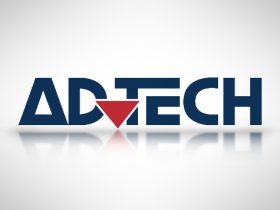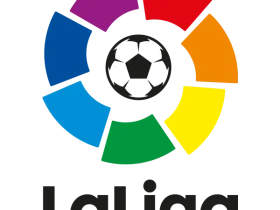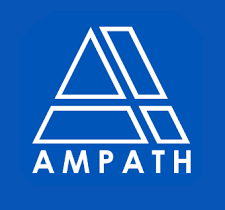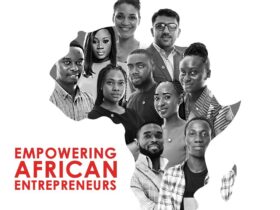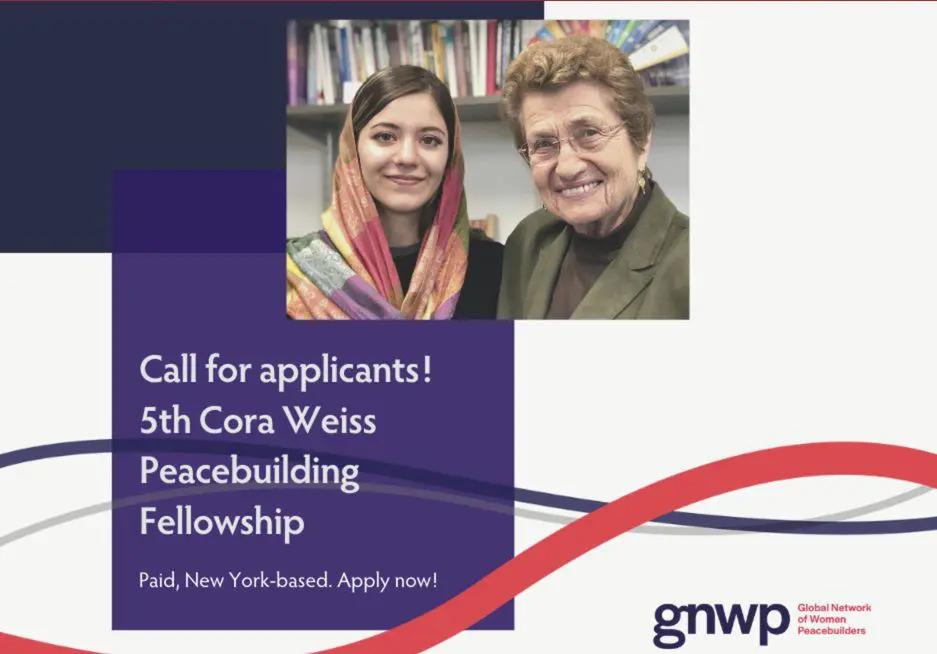U.S. Embassy in Tanzania, The U.S. Embassy in Dar es Salaam, U.S Embassy Opportunities, U.S Embassy
Apply for Funding Opportunities at the U.S Embassy in Tanzania
The U.S. Embassy in Dar es Salaam, Tanzania announces an open competition for initiatives that promote educational and cultural engagement and foster mutual understanding between the United States and Tanzania. The Embassy seeks projects designed to further the development of Tanzania’s future leaders, build the capacity of Tanzanian institutions, and promote awareness and understanding of shared U.S. and Tanzanian values.
YOU MAY ALSO APPLY FOR:
Fully Funded: Nuffic Orange Knowledge Programme (OKP) 2021/2022 for study in The Netherlands
The U.S. Embassy Dar es Salaam strives to ensure that its efforts reflect the diversity of U.S. society and societies abroad. The Embassy seeks and encourages the involvement of people from traditionally underrepresented audiences in all its grants, programs and other activities and in its workforce and workplace. Opportunities are open to people regardless of their race, color, national origin, sex, age, religion, geographic location, socio-economic status, disability, sexual orientation or gender identity. U.S. Embassy Dar es Salaam is committed to fairness, equity, and inclusion.
Program Description
Proposals are accepted at any time until June 30, 2021. Grant awards are subject to the availability of funds and generally will not exceed $24,500; most will be smaller.
Public Affairs will ONLY consider grants that have an American component or aspect in their proposal. Keep in mind that this funding opportunity is to further the following goals of U.S. Embassy Dar es Salaam:
- Strengthen and Promote Democracy and Human Rights
- Improve Health and Education of Tanzanians
- Inclusive, Broad-Based Economic Growth
- Advance Peace and Regional Security
This funding opportunity is not charity and absent a clearly stated and direct link to these goals, a proposal will not be considered.
Applications will be evaluated based on the proposed topic, clearly formulated goals, the target group, and the capacity of the individual or organization to carry out the proposed activity. Cost-sharing and the inclusion of alumni of U.S. Department of State exchange programs in developing and implementing grant activity are encouraged. Applications should explain clearly any other likely sources of funding for the project.
Activities that are NOT funded include, but are not limited to:
- Support for individual or group research projects;
- Support to help defray the costs of study abroad;
- Construction projects;
- Social welfare projects;
- Individual travel to conferences;
- Completion of projects begun with other funds;
- Projects that are inherently political in nature or that contain the appearance of partisanship/support to individual or single party electoral campaigns;
- Political party activities; and,
- Projects that support specific religious activities.
Federal Award Information
CFDA Number: 19.040 – Public Diplomacy Programs
Announcement posted: November 1, 2020
Closing date for applications: June 30, 2021
Decision dates: January 31, 2021 / April 30, 2021 / July 31, 2021
Number of awards anticipated: 2-4 awards (dependent on amounts)
Award amounts: awards may range from a minimum of $2,000 to a maximum of $24,500
Total available funding: $49,000
Type of Funding: FY 2021 Smith-Mundt Public Diplomacy Funds
Anticipated program start date: February-September 2021
Length of Performance Period: Six to 12 months.
This notice is subject to availability of funding.
Funding Instrument Type: Grant, fixed amount award, or cooperative agreement.
Program Performance Period: Proposed programs should be completed in 12 months or less.
Eligibility Information
Eligible Applicants: applicants may be individuals or representatives of civil society and non-governmental organizations, cultural organizations, or research and academic institutions.
Cost Sharing: Inclusion of cost share is not a requirement of this opportunity.
All project activities must take place outside of the United States and its territories
Key Registrations
All federal award recipients must maintain current registrations in the SAM database. Recipients must maintain accurate and up-to-date information in www.SAM.gov until all program and financial activity and reporting have been completed. Recipients must review and update the information at least annually after the initial registration and more frequently if required information changes or another award is granted. Failure to register in SAM will render applicants ineligible to receive funding.
All applicants except individuals must complete the following registrations:
Register for a Data Universal Numbering System (DUNS) number at httpss://fedgov.dnb.com/webform
Obtain necessary codes: for non-U.S. organizations, an NCAGE code at
httpsss://eportal.nspa.nato.int/AC135Public/scage/CageList.asp
Organizations must have a commitment to equal opportunity employment practices and to non-discrimination practices with regard to beneficiaries, without regard to race, religion, ethnicity, gender, sexual orientation, or political affiliation.
Contact Information:
For information and questions about this announcement, please send all email inquiries to the U.S. Embassy Dar es Salaam at [email protected]. Applications must be submitted in English to [email protected]. All correspondence regarding this announcement should reference the title “Public Diplomacy Small Grants Program” located at the top of this announcement when making your request.
Successful applicants will be required to sign a grant agreement with the U.S. Embassy and to submit program and financial reports as specified in the agreement.
Application and Submission Information
Application templates are available online at:
httpsss://tz.usembassy.gov/education-culture/funding-opportunities/
Applications must be submitted using the form “Dar PD Small Grant Application Form”
Please follow all instructions below carefully. Proposals that do not meet the requirements of this announcement or fail to comply with the stated requirements will be ineligible.
Please ensure:
- The proposal clearly addresses the goals and objectives of this funding opportunity;
- The proposal addresses all questions in the “Dar PD Small Grant Application Form;”
- All documents are in English;
- The budget is in U.S. dollars;
If your application is successful, the following documents will be required:
- SF-424 (Application for Federal Assistance – organizations) or SF-424-I (Application for Federal Assistance –individuals)
- SF424A (Budget Information for Non-Construction programs)
The application form includes the following:
- Executive Summary: Short narrative that outlines the proposed project, including project objectives and anticipated impact.
- American Component: The project must have an American aspect.
- S. Embassy Dar es Salaam Goal: Select the goal the project will address.
- Project Justification: Clear, concise, and well-supported statement of the problem to be addressed and why the proposed project is needed.
- Target Audience: Include the group/demographic the project will reach and how many people the project intends to reach.
- Program Goal and Objectives: The “goals” describe what the project is intended to achieve. The “objectives” refer to the intermediate accomplishments on the way to the goals. These should be achievable and measurable.
- Project Activities: Include the proposed project schedule and timeline for the project activities. Include the dates, times, and locations of planned activities and events.
- Monitoring and Evaluation: Outline in detail how the proposal’s activities will advance the program’s goals and objectives (listed above). A strong proposal will include:
- Any outcomes the grantee expects to occur because of their program. Outcomes could include: change in knowledge, awareness, and attitudes; improved quality of services; increased capacity at a school, group; etc. Proposals should also include how the grantee will know those outcomes are occurring (surveys, interviews, observations, etc.)
- For example: If the program expects that a teacher-training program will improve the skills of a teacher, a proposal may explain the skills the teacher would gain and plan to perform a survey before the program and a survey following the program that would show a change in understanding due to the program.
- A plan to include the grantee’s reflection of how their program contributed to the program’s goals. As applicable, a strong final report would include success stories, behaviors changed, lessons learned, and results obtained.
- Key Personnel: List personnel involved in the project, their qualifications, and their role in the project. Personnel must already be identified and listed by name.
- Project Partners: List partners who will support your project. Please note if you have an existing relationship with your partner organization(s) and describe their role in the project. If you do not have an existing relationship, explain how you anticipate establishing a partnership with the organization(s).
- Sustainability: Explain how you plan to continue the program beyond the grant period, or the availability of other resources, if applicable.
- Communication Plan: Explain how you will promote your project. Include social media, websites, print news, or other forms of media you intend to use to share information about your project to beneficiaries and the public. Communications should include U.S. Embassy branding and a draft version of the Embassy logo and wording about Embassy role should be approved before uploading or printing final versions. These include training materials, materials for recipients or materials to communicate or promote with foreign audiences a program, event, project, or some other activity under an agreement.
- Budget Summary and Narrative: Applicants must submit a detailed budget and narrative justifying proposed expenditures. Budgets must be submitted in U.S. dollars. Please note that the U.S. Embassy Dar es Salaam Public Diplomacy Small Grants Program does not support the following activities or costs, and the selection committee will deem applications involving any of these activities or costs ineligible:
- Sustained staff salaries, office space, and overhead/operational expenses exceeding 10% of total operational costs;
- Large items of durable equipment or construction programs;
- Alcohol, excessive meals, refreshments, or entertainment;
- Academic or scientific research;
- Support or opposition of partisan political activity or lobbying for specific legislation or programs;
- Programs that support specific religious activities;
- Fund-raising campaigns;
- Programs intended primarily for the growth or institutional development of the organization;
- Venture capital, for-profit endeavors, or charging a fee for participation in the project ;
- Individual scholarships;
- Personal development;
- Social travel/visits;
- Gifts or prizes;
- Programs that duplicate existing programs
Review and Selection Process
Evaluation Criteria: The U.S. Embassy Public Affairs Section will use the criteria outlined below to evaluate all applications. The proposals will be reviewed by a Selection Committee. Panelists will use the criteria below to review and evaluate applications.
- Purpose and summary, description, and implementation plan: When developing the purpose, summary, description, and implementation plan, applicants should aim to make all descriptions clear, concise, and compelling. Reviewers will judge the proposals based on the likelihood for the project to exert a sustained, powerful influence on the community where it is undertaken. Does the project address an important gap of understanding or need? If the aim of the project is achieved, how will existing knowledge or practice be improved? What audience do the applicants hope to reach with this project? How many people will participate and how will they be selected?
- American component and U.S. Embassy goal: Successful applications will address one of the embassy’s main goals with an American component or aspect. “How does this program promote a better understanding of the United States?”
- Participation and support from reliable local partners: A successful application will demonstrate buy-in and support from the community where the project will take place. The involvement of local partners is a strong sign that there is community support and that the project will engage a broad array of experts, such as subject matter experts, community centers, academic institutions, businesses, local/national government, non-governmental organizations, American Spaces, etc.
- Evaluation and impact of the project: Proposals must include a plan to monitor and evaluate the project’s success, both as the activities take place and at the end of the project. Overall, the quality of monitoring and evaluation plan will be judged on how well it 1) specifies the intended outcomes and how these outcomes will be achieved, 2) gives clear descriptions of how each outcome will be measured, 3) identifies when the outcomes will be measured, and 4) explains how outcomes will be collected (such as surveys, interviews, or focus groups). Successful monitoring and evaluation depend heavily on setting clear goals and outcomes and consider potential problems, alternative strategies, and benchmarks for success. Interim and final reporting is required for winning projects and winning applicants should have a reporting plan to share information about the success/impact of the project.
- Sustainability: Project activities will continue to have positive impact after the end of the project.
- Communication, media and outreach plan: The project includes a plan to share information about the project.
- Budget and budget narrative: The budget and narrative justification are sufficiently detailed. Costs are reasonable in relation to the proposed activities and anticipated results. The budget is realistic, accounting for all necessary expenses to achieve proposed activities. The results and proposed outcomes justify the total cost of the project. Budget items are reasonable, allowable, and allocable.
Disclaimer: This notice is subject to availability of funding. U.S. Embassy Dar es Salaam does not guarantee availability of funding by receiving applications under this announcement. Only successful applicants will be contacted.
Federal Award Administration Information
The grant award will be written, signed, awarded, and administered by the Grants Officer. The assistance award agreement is the authorizing document and it will be provided to the recipient for review and signature by email. The recipient may only start incurring program expenses beginning on the start date shown on the grant award document signed by the Grants Officer.
If a proposal is selected for funding, the U.S. Embassy Dar es Salaam has no obligation to provide any additional future funding. Renewal of an award to increase funding or extend the period of performance is at the discretion of the Grant Officer at the U.S. Embassy Dar es Salaam.
Issuance of this NOFO does not constitute an award commitment on the part of the U.S. government, nor does it commit the U.S. government to pay for costs incurred in the preparation and submission of proposals. Further, the U.S. Embassy Dar es Salaam reserves the right to reject any or all proposals received.
Reporting Requirements: Recipients will be required to submit financial reports and program reports. The award document will specify how often these reports must be submitted.
For information and questions about this announcement, please send all email inquiries to the U.S. Embassy Dar es Salaam at [email protected].
For More Information





